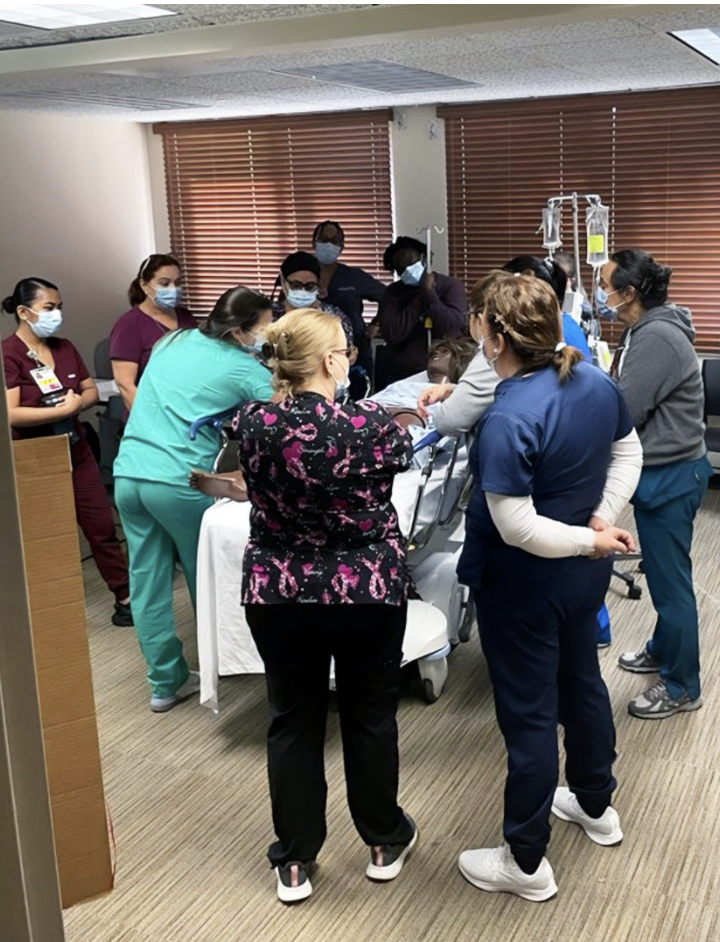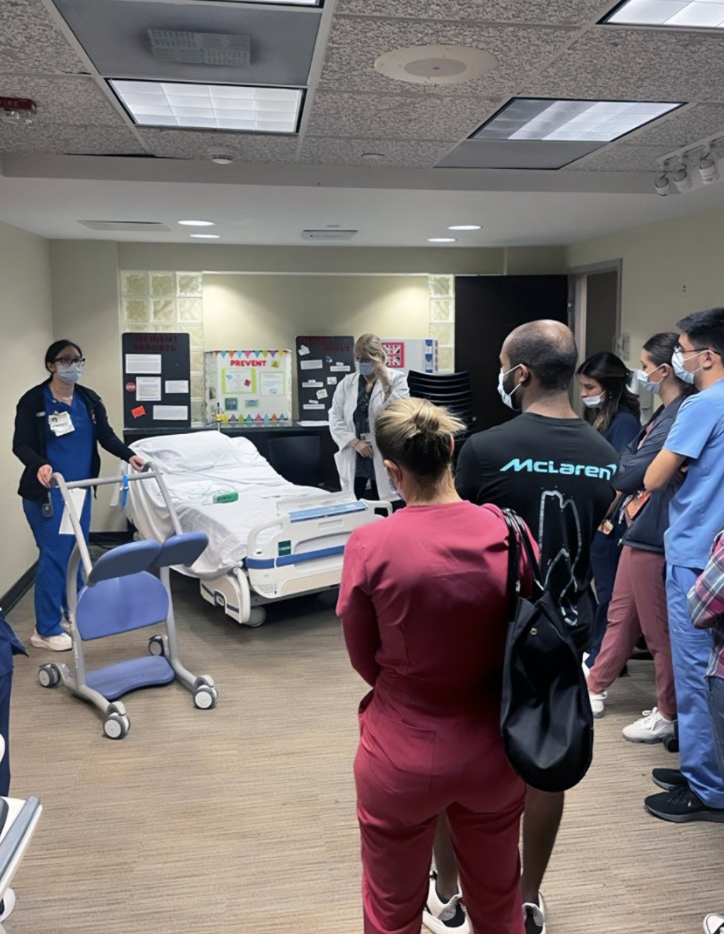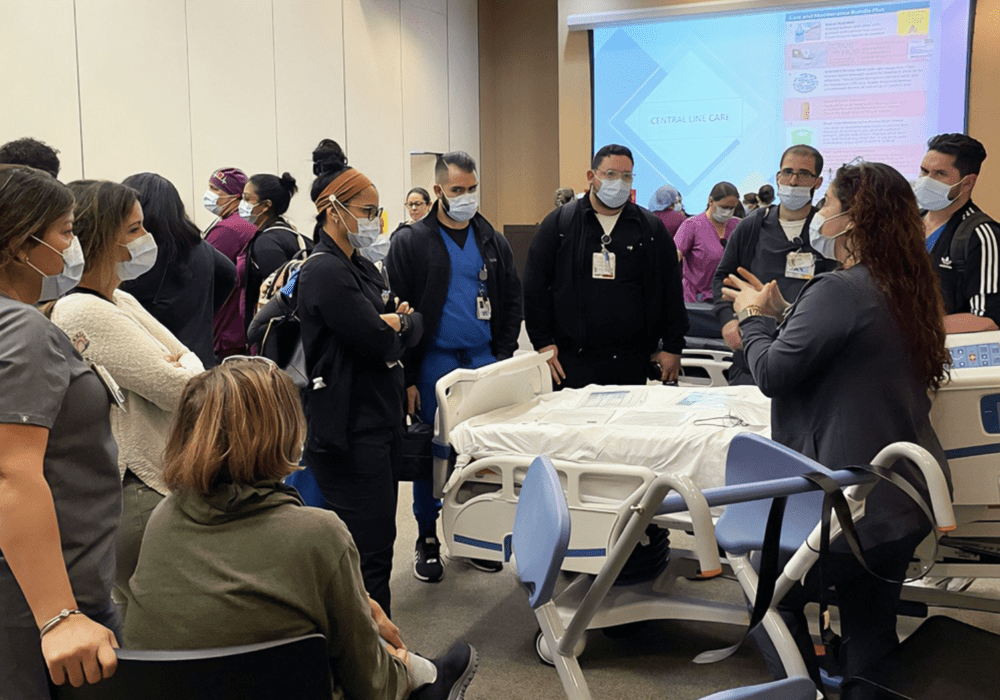By Margie Martin, MSN-Ed, RN, CMSRN, and Cinthya Llop BSN, RN, CMSRN
Pressure injuries, falls, central line–associated bloodstream infections, catheter-associated urinary tract infections, and other hospital-acquired conditions (HACs) develop while a patient is in the hospital being treated for another condition. They not only cause patient harm, but they also contribute to escalating costs of care. For example, in the United States, the annual cost of treating pressure injuries is estimated as high as $22 billion, with expenses for a single pressure injury ranging from $500–$70,000.

As direct care providers, nurses have a role in preventing HACs, and continued education and reinforcement equips them to do so. Nursing education and competency significantly contribute to HAC prevention and patient safety. That’s where clinical nurse educators (CNEs) can step in to deliver innovative nursing education.
Educational Fairs Ensure Evidence-Based Practice
Because of the large number of new staff at Baptist Health of Miami in Florida, the nursing education team sought out a more robust educational method to prevent HACs, improve patient outcomes, and optimize hospital reimbursement. The CNEs at Baptist Health developed mandatory educational fairs to reinforce nurses’ current education, build on that knowledge with the latest evidence-based practices in preventing HACs, and ensure nurses are clinically competent in the latest evidence to advance quality measures scores.
CNEs from multispecialty and specialty areas were deployed to implement the initiative and capture the education for new staff. We began by identifying the educational fairs’ purpose: to reduce HACs, such as central line–associated bloodstream infections, catheter-associated urinary tract infections, falls, and pressure injuries, with methods that directly improve quality measures.
We delivered unit-specific education that engaged nurses and nursing assistants through various stations. Each offered teaching via visual aid handouts on items topics such as central line care and hand washing, demonstrated proper Foley care with state-of-the-art mannequins, and used QR code technology to track attendance.

Positive Findings Make Educational Fairs an Annual Event
As of April 2023, a total of 1,372 nurses and nursing assistants (90%) attended the educational fairs. On postinitiative surveys, 78% of the nurses and nursing assistants said that educational fairs improved their knowledge of HACs and that they felt more knowledgeable of and confident with using evidence-based education to prevent HACs for their patients. A large majority of staff (94%) also reported making changes in practice based on the information provided. Based on those positive outcomes, the CNEs recommended conducting educational fairs annually at Baptist Health to maintain and improve nurses’ and nursing assistants’ competencies.
The implementation of educational fairs as part of annual required education is an innovative approach to preventing HACs in the hospital setting. Nurses and nursing assistants are an important part of patient safety data, and education is an important part of a nurse’s responsibility to continually expand their knowledge based on data and best practices. Incorporating educational fairs made a difference in patient care practices at Baptist Health.
As CNEs continue to look for ways to ensure that patient safety remains the primary focus, further nursing education teaches and reinforces the processes in place to sustain zero harm to patients.
Editor’s note: The author acknowledges all of the CNEs at Baptist Health of Miami in Florida for their contributions to the educational fair program.






